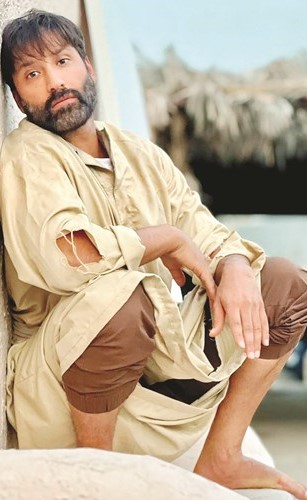05/11/2023
05/11/2023

KUWAIT CITY, Nov 5, (Agencies): Renowned actor Abdullah Al-Talihi expressed his delight at being part of the heritage drama series "El-Faraj after the Drought," set in the year 1867 during the "Year of the Hilq" famine in Kuwait. He shared his aspiration to engage in historical work since the early days of his career.
Al-Talihi, speaking to Al-Anba, highlighted the growing popularity of heritage and historical productions over the years and how they have become strong contenders in the world of television drama. This success encouraged him to break out of his comfort zone for this project, which brings together some of the Gulf's brightest stars, including Salah Al-Mulla, Ghazi Hussein from Qatar, Abdullah Malak from Bahrain, and Tareq Al-Nafisi from Saudi Arabia. Kuwaiti actors such as Yasaa, Nawaf Al-Fajji, and Abeer Al-Jundi also join the cast.
The series, produced by Mashari Al-Omairi, known for his contributions to heritage dramas, and directed by Mohammed Al-Tawalah, was entirely filmed in Kuwait. It consists of 30 episodes and is expected to air on Kuwait TV, as well as on other platforms.
The story of "El-Faraj after the Drought" revolves around a historical period in the Arabian Peninsula, specifically the "Year of the Hilq" famine in Kuwait in 1867, which lasted until 1871. During this time, the region faced a devastating drought, and while Kuwait was relatively well-off, it provided refuge, aid, and sustenance to those in need, allowing some to settle in the country. The famine tragically affected some Kuwaitis, but with the help of benevolent individuals, they overcame this hardship.
The series sheds light on the transformation in the lives of traders from Saudi Arabia, Bahrain, and Kuwait during this era, as they shifted from poverty to prosperity.
Al-Talihi also expressed the significance of his role as "Abdullah Al-Atal" and how it marks his first time portraying a character with his real name since the beginning of his 13-year acting career. He plays the character of "Hammali," a destitute man wearing worn clothes and unkempt hair, serving others. His performance differs visually and dramatically from what the audience is accustomed to in contemporary works that often focus on relationships, marriage, divorce, and corporate fraud issues.
Al-Talihi, while enthusiastic about the project, acknowledged the differences between heritage series and contemporary productions. Heritage series emphasize values, social customs, and prevailing traditions of the time, evoking memories and nostalgia for past eras. He also recognized the challenges and the requirement for thorough research to ensure authenticity. He welcomed the audience to approach the series without prejudice, as he anticipated that there might be minor mistakes but hoped for a fair overall judgment.


